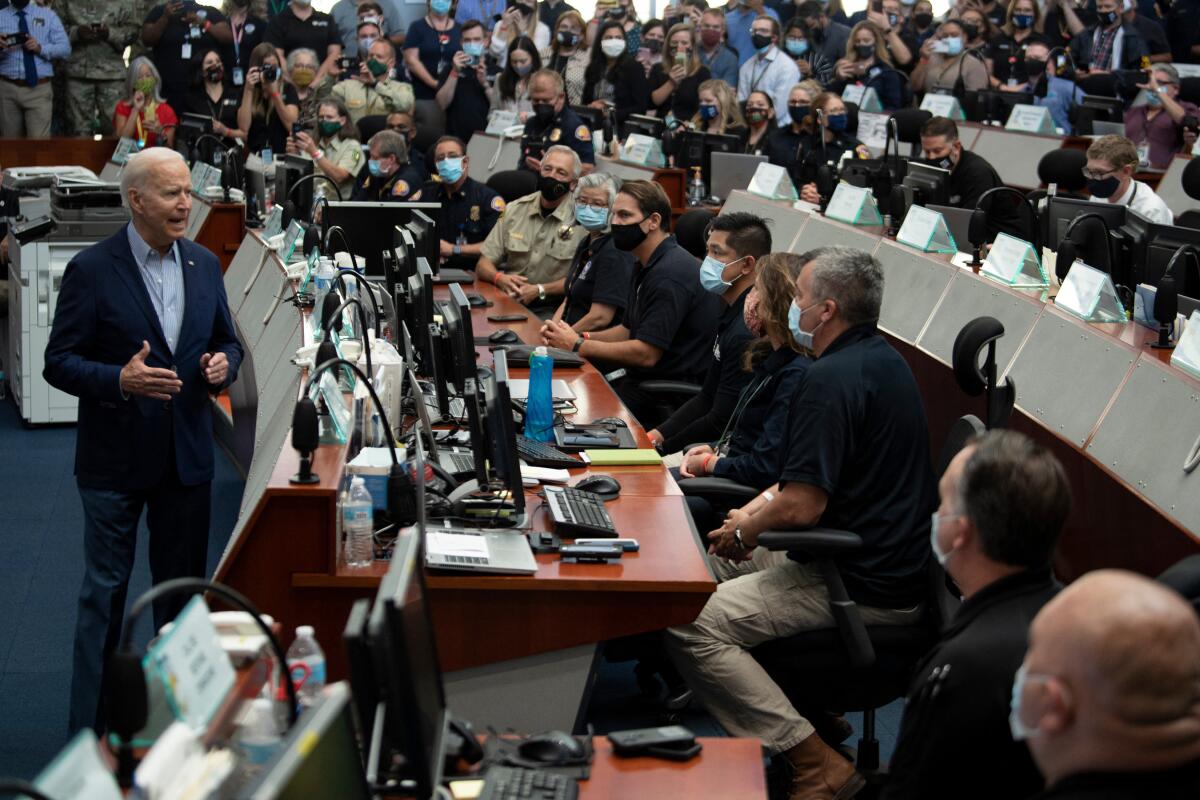For the first time in state history, a woman will likely lead California’s emergency response

- Share via
For the first time, a woman has been selected to lead California’s emergency response.
Gov. Gavin Newsom on Saturday appointed Nancy Ward as director of the Governor’s Office of Emergency Services. She will replace Mark Ghilarducci, who served in the role for a decade and announced his retirement earlier this year. Ward’s appointment needs to be confirmed by the California Senate.
Ward was the first woman to lead the Federal Emergency Management Agency, when she served as the agency’s acting administrator during President Obama’s transition in 2009. She worked in various leadership positions for FEMA between 2000 and 2014.
After her time at FEMA, Ward worked as chief deputy director for California’s agency, Cal OES, from 2014 to 2017, and has served in a part-time role since then. As director, she will oversee the state’s response to wildfires, earthquakes, mass shootings and other disasters and crises, as well as its counter-terrorism efforts. Her salary will be nearly $233,000.
“Nancy Ward is a seasoned emergency response veteran with decades of experience at the local, state and federal level,” Newsom said in a statement. “Under her leadership, California will remain ready to respond, no matter the crisis, keeping the safety of Californians at the forefront.”
Ghilarducci in a statement called Ward “an exceptional emergency manager and skillful leader.”
In an interview with the Times in September, Ghilarducci warned of the potential for worsening wildfires and domestic terrorism, as well as the ever present threat of a major earthquake. Although it’s impossible to fully prepare for all scenarios, the state has invested billions of dollars in preparedness, he told the Times.
“I’ve seen so much, from terrorism, from natural disasters, from human-caused disasters, technological disasters. Lives ripped apart. Sadness,” Ghilarducci said. “I’ve also seen the best come out of that. As much as we are thinking that we’re at each other’s throats ... I’ve seen people come together, people who have lost everything still stepping forward to help other people who have lost everything.”
Times writer Phil Willon contributed to this report.
More to Read
Sign up for Essential California
The most important California stories and recommendations in your inbox every morning.
You may occasionally receive promotional content from the Los Angeles Times.














